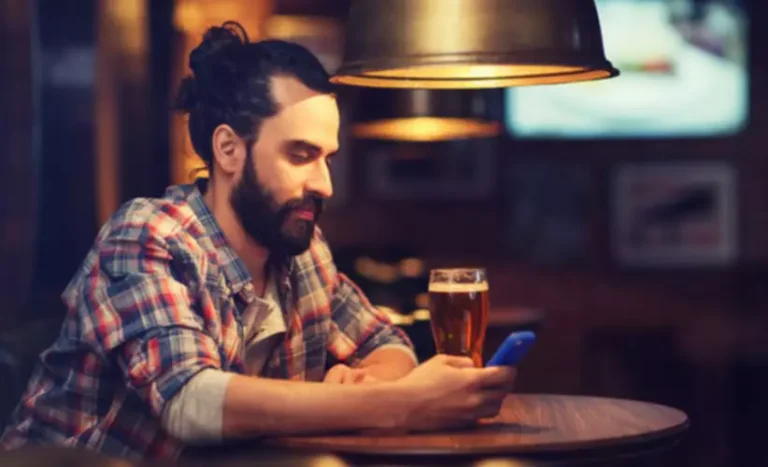
Alcohol dependence has been shown to be genetically influenced and to run in families (Schuckit and Smith 1996). The disorder often develops when individuals are in either their twenties or thirties. Similarly, major anxiety disorders usually are apparent before age 30, and although major depressive disorders often have a later onset, they too are frequently observed before age 30.

Mental health in your inbox
If you suffer from panic attacks, cut right down on your alcohol consumption, if you drink. As the initial calm feeling fades you can feel anxiety as the effects of the alcohol wear off. It slows down processes in your brain and central nervous system, and can initially make you feel less inhibited.10,11 In the short-term, you might feel more relaxed – but these effects wear off quickly. AUD is a chronic condition that includes a variety of effects on the mind and body. People can usually manage all types of anxiety successfully by using a combination of lifestyle changes, medications, and therapy rather than alcohol. A 2017 study found that, when researchers measured anxiety clinically, levels of anxiety were higher in those with AUD than those without when they faced stress.
Try changing your drink
Whether you have a mental health condition like anxiety or not, certain behaviors can signal that your relationship with alcohol could cause concern. There are no specific studies that suggest that one type of alcohol can affect anxiety levels more than other types of alcohol. While some people may believe that wine and beer may cause less anxiety than hard liquor due to its alcohol content, this is not true. It’s not necessarily the type of alcohol you drink that can affect your levels of anxiety, but rather anxiety is related to the amount and frequency of alcohol use. Alcohol use can cause new onset anxiety and worsen pre-existing anxiety symptoms.
Anxiety problems in the absence of alcohol misuse
From the psychological perspective, behavioral research demonstrates that drinking to cope with negative affect is a potent marker for current and future problems with alcohol. Neuroscientific research implicates overlapping neurobiological systems and psychological processes in promoting the rise of negative affect and alcohol misuse. The psychiatric perspective that alcohol misuse and co-occurring anxiety represent neurobiologically distinct diagnostic conditions has dominated the field for many decades. However, recent research provides increasing https://ecosoberhouse.com/article/5-great-tips-for-being-sober-around-drinkers/ support for the neuroscientific perspective that these conditions share underlying, mutually exacerbating, neurobiological processes. Although these studies raise important questions, researchers cannot draw definitive conclusions about the association between alcoholism and psychiatric disorders for a number of reasons. The major problem encountered in these studies involved the use of research methods that failed to address several important issues that might have explained the observed relationships (Allan 1995; Schuckit and Hesselbrock 1994).
The potential for harm
- While it might be tempting to turn to alcohol to manage feelings of anxiety, it can be a slippery slope that worsens anxiety problems and increases your risk of developing an alcohol use disorder.
- It’s important to speak with your healthcare provider to make a plan for cutting back on drinking safely.
- The onset of symptoms related to social anxiety disorder and agoraphobia can be a trigger for some people to develop unhealthy relationships with alcohol.
- People with depression and anxiety might use alcohol to help ease symptoms, but excessive alcohol use can also worsen your mental health.
- The psychosocial impact of alcoholism also has been implicated in the genesis of anxiety.
Whether you’re gathering the courage to socialize with people you barely know, fly on an airplane, or even if you’re just feeling worried about the future, alcohol can help loosen inhibitions and dampen self doubt and fears. While you may feel more relaxed temporarily, using alcohol to tame your anxiety can backfire in the long run. Let’s break down the relationship between can drinking alcohol cause panic attacks, and discuss how to find relief from anxiety without drinking. Feifel indicates you may be more likely to experience hangxiety if you live with an anxiety disorder or naturally have a high base level of anxiousness.

What your biological age can reveal about your health

For anyone prone to anxiety, it can be easy for one drink to turn into more and lead to a growing dependence on alcohol. Any information published on this website or by this brand is not intended as a substitute for medical advice, and you should not take any action before consulting with a healthcare professional. There also seems to be a correlation between the amount of alcohol I drink and how anxious I am—the more gin and tonics I have, the more anxious I’ll be when they wear off. If they continue to use alcohol to help them feel more relaxed or at ease, they might eventually feel the need to avoid any social situations where they would be unable to drink. When these symptoms become overwhelming, the person might have an alcoholic drink to try to calm down.
A classic analysis of over 300 relapse episodes implicated negative emotional states, conflict with others, and social pressure to use in nearly 75 percent of the relapses studied (Cummings et al. 1980). To prevent relapse resulting from negative emotional states such as anxiety, RPT recommends stimulus control (i.e., avoidance of high-risk situations, with escape as the next best option) as a first-order strategy (Parks et al. 2004). Relaxation training also is recommended because it “can help clients reduce their anxiety and tension when facing stressful situations and minimize their typical levels of motor and psychological tension” (Parks et al. 2004, p. 78). For clients with both alcohol use and anxiety disorders, however, a potential limitation of RPT is that avoidance of anxiety-inducing situations can preclude any potential anxiety reduction via exposure therapy, which in contrast requires clients to directly confront such situations. In short, for comorbid individuals, the avoidance and escape-oriented coping strategies taught within RPT could perpetuate anxiety problems. This can be achieved, for example, by using abstinence-focused social support during in vivo exposure to situations eliciting anxiety or by conducting in vivo exposure only in environments without access to alcohol.
- Compared to retrospective assessments of the order of onset for co-occurring disorders, assessments of prospective relative risk (i.e., the risk for developing a condition given the presence or absence of another condition) provide more information about conferred risk.
- This later stage of addiction marks a shift from impulsive use driven by positive reinforcement to compulsive use driven by negative reinforcement.
- Central to this strain is the assumption that specific diagnostic dyads are the appropriate unit of analysis for studying co-occurring negative affect and alcohol misuse.
- Thus, previous research has suggested that parallel psychosocial treatments for anxiety and AUDs may be too demanding for clients, which can negatively influence treatment outcomes (,Randall et al. 2001).
- These attacks can mean sweating, pounding heart, shaking, choking, shortness of breath, or a sense of impending doom.
- Cross-referencing and reconciling (if not integrating) discipline-specific approaches may reveal opportunities for synergy.
People may also benefit from counseling, which can take the form of cognitive behavioral therapy (CBT) or interpersonal therapy, among others. Your partner, parents, children, friends, employer, coworkers, doctor, or therapist might confront you about your drinking habits or your behavior when you drink. The symptoms of a hangover, such as nausea and vomiting, dizziness, dehydration, and low blood sugar, can make it hard to function. If someone is sick because of a hangover, they might not be able to attend to their responsibilities at home, school, or work—which can, in turn, fuel their anxiety. If you or someone you love is experiencing alcohol related anxiety, there are ways to cope.
Leave a Reply